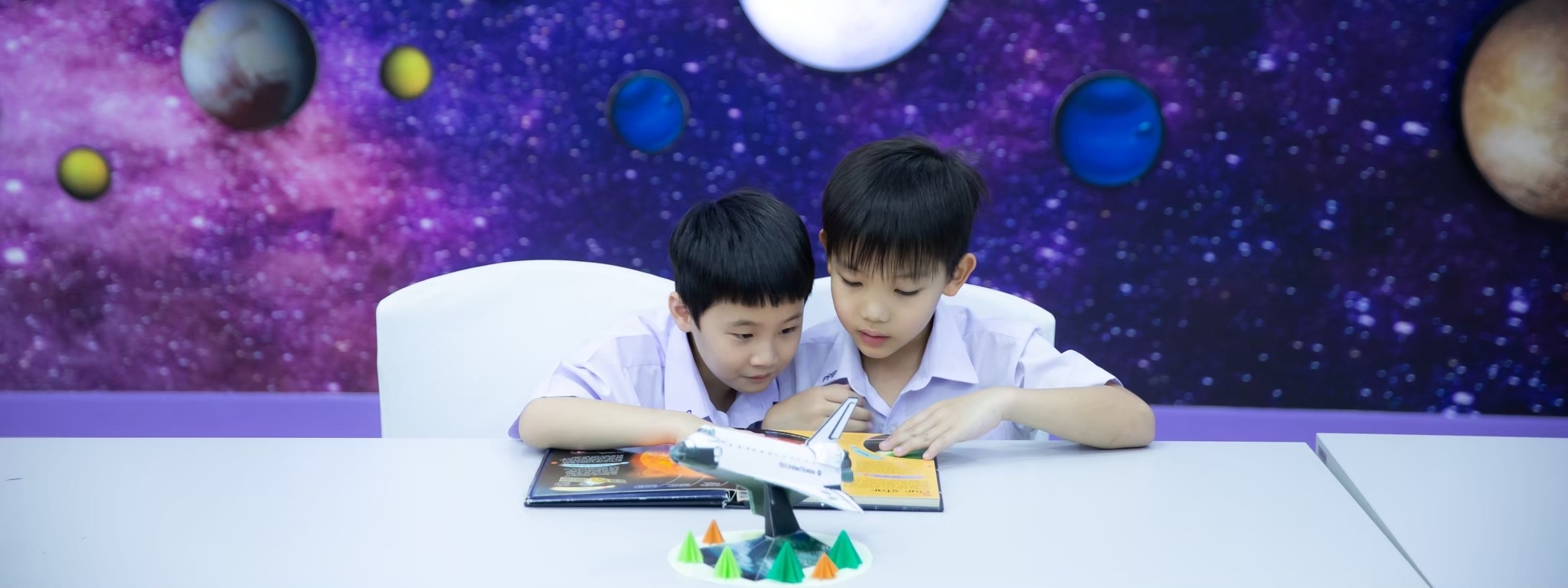CURRICULUM















The national curriculum in England
Key stages 1 and 2 framework document










KEY STAGE OVERVIEW
Foundation Stage
This is the first time for many of the students to attend school and we aim to give them the foundations needed to continue on their learning journey throughout school and their everyday life. During their time in our milepost, they will learn the skills outlined in the Development matters document that are broken into 7 areas of learning.The three Prime areas are Communication and Language, Personal, social, emotional development and Physical development. The four specific areas are Expressive art and design, Literacy, Maths and Understanding of the World. Whilst studying the students will learn a number of skills that will enable them to become a well rounded and effective learner.
The skills from our 7 areas of learning are interwoven with a topic from the IEYC (International Early Years Curriculum). We select a topic that links with the interests of our students and use this to plan a series of lessons and activities.
Throughout their time in the EYFS the students will study many lessons including Thai language, Chinese, Thai dance, Thai Culture, PE and Swimming. Alongside this, they will have discreet lessons for Phonics, English and Maths. By the time the students leave the EYFS they have learnt the necessary skills to move forward in their learning journey and build upon their foundations.


Key Stage 1
Key stage 1 begins at the age of 5 and consists of Year 1 and Year 2. This is where learning transitions towards a more formal, structured approach, as they study a range of subjects that follow the Uk National curriculum. Furthermore students will have specialist lessons in Thai language, Thai Culture, dance and music as well as weekly Chinese, PE and Swimming lessons.Initially, Year 1 begins with a more play based, practical approach to learning to transition them into becoming more independent. This is expanded upon in Year 2 when students are expected to use greater initiative to solve problems across all subjects. Phonics is a fundamental practice throughout Key stage 1. Systematic, synthetic phonics is vital in teaching the students the skills required to be able to decode, blend and access a variety of texts.
Alongside this, our Talk for Writing scheme encourages students to improve their spoken English which is then transferable to their writing. In Year 1, the focus is on letter formation, simple sentence structure and the introduction of basic punctuation. These skills are developed further in Year 2 when they are encouraged to use more challenging spelling and grammar as well as more complex punctuation.
In Maths, the White Rose scheme helps students develop their conceptual understanding of mathematics by using concrete objects, pictorial representations and abstract thinking. This supports every learner with their reasoning and problem solving.
At the end of Key Stage 1, students will be confident, independent learners, ready to continue their educational journey as they progress to Key stage 2.
Lower Key Stage 2
As students transition from Key Stage 1 into Lower Key stage 2, the students take more ownership of their own learning through planning, drafting, editing and publishing their writing. Reading takes another step forward from phonics to whole class reading as they fully embrace the VIPERS style reading skills. These include a range of fiction and nonfiction genres to facilitate reading for pleasure.In Maths students will consolidate their understanding of written methods using a concrete, pictorial and abstract approach. By the end of Lower Key Stage 2 they will be assessed on all 12 times tables through an end of year assessment that will support their learning into Year 5 and beyond. In Science, students are given a range of scientific experiments and investigations to foster their sense of curiosity about the world around them.
Computing has deep cross curricular links with an emphasis on computer science. With this knowledge and understanding they can create computer programmes and systems to support them in becoming digitally literate in an ever changing digital world. IPC is designed to be engaging, rigorous and enjoyable through various projects focusing on foundational subjects including geography, history, art, design and technology. These include home projects and opportunities for parent involvement throughout the learning cycle.


Upper Key Stage 2
In Upper Key Stage 2, we strive to develop the students into independent and creative learners. We teach a broad and balanced curriculum that provides them with the knowledge and skills to prepare them for life at secondary school and beyond. In Reading, we foster a love of literature through a range of exciting text types selected to enrich their vocabulary and develop them into confident readers. We use the VIPERS approach with a particular focus on inference and explain questions where pupils use the text, as well as their understanding of the wider world, to provide explanations of increasing depth.Similarly in Writing, we continue to use the Talk for Writing cycle and students’ progress are assessed against the UK National Curriculum objectives. In Maths, building on the mathematical fluency that the students develop in previous year groups, we move towards a focus on problem solving and reasoning. These vital skills are carefully taught in small steps so that the students are able to persevere and problem solve using a variety of representations.
In International Primary Curriculum (IPC) we teach the foundation subjects, history, geography, art and Design and Technology. During these lessons, pupils are provided with the opportunity to gain knowledge about global issues in the world around them.
In Year 6, we also work to prepare the student’s to complete their secondary admission tests. In previous years, our pupils have successfully moved onto a range of international schools in Bangkok.
